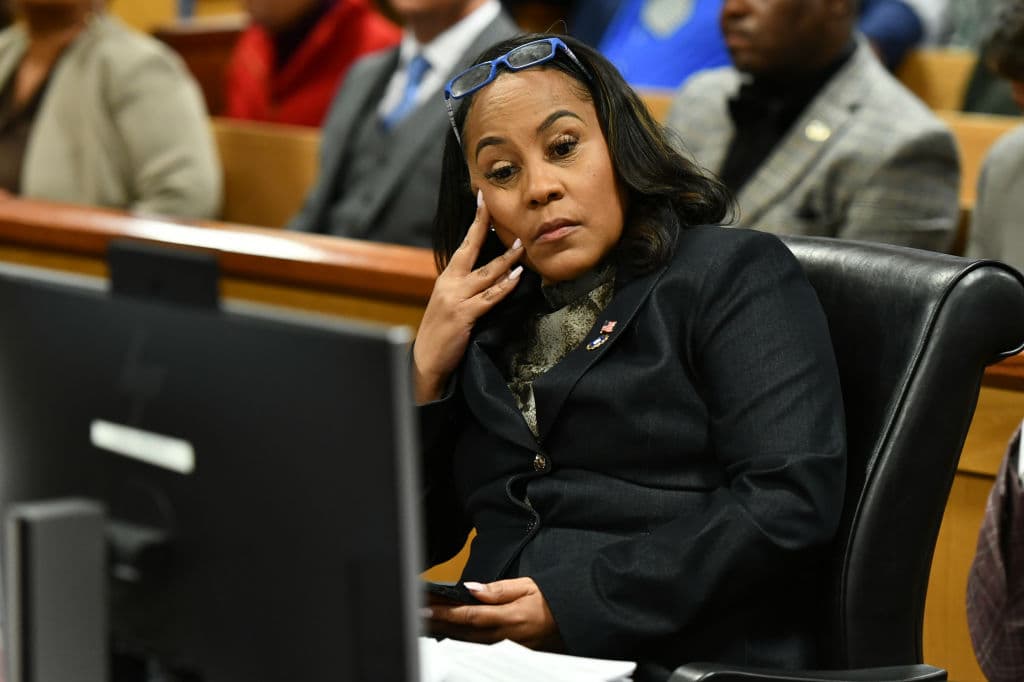How Jack Smith’s Supreme Court Loss Could Throw Alvin Bragg’s and Fani Willis’s Prosecutions of Trump Into Tailspins
The implications of the justices’ ruling on immunity are just beginning to be felt in the Georgia and New York cases.

Judge Juan Merchan’s ruling on presidential immunity, now set for November 12— sentencing will be November 26 — could accelerate an emerging clash between the Supreme Court and the state prosecutions of President Trump that could throw those cases into tailspins.
The high court ruled in Trump v. United States that official presidential acts are presumptively immune from prosecution, while unofficial ones are fair game. While the Supreme Court sits at the apex of the federal judiciary, its shaping of the protections of the presidency will also bind state judges and determine the course of the cases of District Attorneys Alvin Bragg and Fani Willis.
The implications of immunity will come into sharpest relief in Special Counsel Jack Smith’s January 6 prosecution, the case that came up to the Nine in Trump. The justices returned the election interference case to Judge Tanay Chutkan to determine which evidence adduced by Mr. Smith can survive its ruling. He has issued a new indictment to more easily pass that test.
Trump, though, also faces criminal prosecutions at Manhattan — where he has already been convicted — and at Fulton County, in Georgia. Immunity will bear on both of those cases, and even if Trump wins the White House, the pardon power will not suffice to neutralize them. That is because the Framers granted the president the ability to pardon only “Offenses against the United States,” not state charges or convictions.
The former president contends that the hush money convictions brought in by the New York jury cannot stand in light of what Judge Merchan calls the Supreme Court’s “historic and intervening decision” on presidential immunity. The judge delayed any decision on immunity or sentencing in the case until after November’s election. By then, Trump could be the president-elect, biding his time until Inauguration Day.
Mr. Bragg in July wrote to Judge Merchan to explain the People’s position that the immunity ruling “has no bearing on this prosecution and would not support vacatur of the jury’s unanimous verdict (let alone dismissal of the indictment) even if its reasoning did apply here.” The prosecutor, though, took no position as to whether Judge Merchan ought to delay his decisions until after the election. The jurist opted to do so.
The district attorney’s position is that the 34 “guilty” verdicts he secured are founded on private acts — falsified hush money payments to the adult film actress Stephanie Clifford, known as “Stormy Daniels.” Trump has requested that a federal judge, Alvin Hellerstein, strip Judge Merchan of the case.
Judge Hellerstein has demurred. If Judge Merchan rules against Trump, the 45th president could again seek succor from the federal judiciary. That could set up a possible clash between the state court judge and the highest court in the land.
The implications of immunity are already being felt in the Peach State, though the 45th president has yet to invoke that protection in the racketeering case brought against him and 18 others by Ms. Willis.
His priority before Judge Scott McAfee and now the Georgia Court of Appeals has been to disqualify the district attorney for her secret romantic relationship with her special prosecutor, Nathan Wade. Trump also maintains that Ms. Willis’s accusation that her opponents are “playing the race card” amounts to poisoning the jury pool in majority-minority Fulton County.
Another one of Ms. Willis’s defendants, Chief of Staff Mark Meadows, has mounted a bid to use the federal ruling on immunity to foil Fulton County’s case. The North Carolinian has asked the Supreme Court to move the prosecution to federal court.
He argues that Trump is expansive enough in its protection of executive action to reach not only state cases like Ms. Willis’s, but also erstwhile presidential staff like himself because the “threat posed by prosecutions against federal officers for actions relating to their federal functions does not evaporate once they leave federal office.”
Mr. Meadows calls on the Constitution’s Supremacy Clause, which ordains that “This Constitution, and the Laws of the United States … shall be the supreme Law of the Land; and the Judges in every State shall be bound thereby, any Thing in the Constitution or Laws of any State to the Contrary notwithstanding.”
That means that while the Supreme Court decides only federal law, a state court cannot rule crosswise with the Nine. Though Judge Merchan will likely paint his immunity ruling as concordant with Trump, the final say could be had by the Supreme Court itself.

